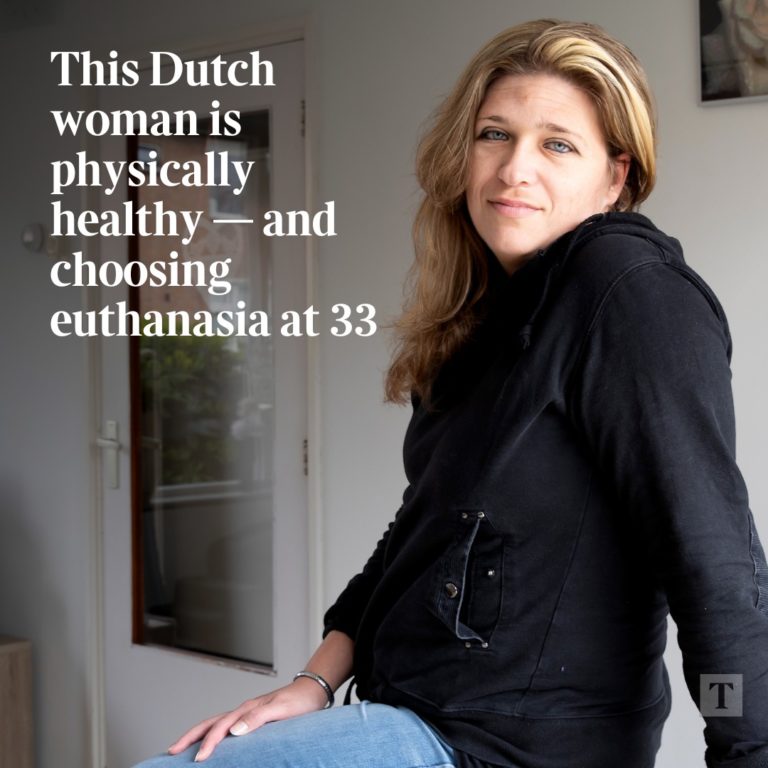The topic of euthanasia is one that evokes deep emotions and complex discussions, particularly when it involves individuals like Jolanda Fun, who have chosen this path for themselves. As society grapples with the ethical implications of assisted dying, the story of Jolanda Fun serves as a poignant reminder of the need for compassion, understanding, and respect for personal choice. This article aims to explore the nuances surrounding Jolanda Fun's decision, her life, and the broader implications of euthanasia in contemporary society.
As we delve into the details of Jolanda's journey, we will also address the questions that many people have regarding euthanasia. What drives individuals to make this difficult decision? How does society view euthanasia, and what legal frameworks exist to support or restrict it? By examining these questions, we hope to foster a more nuanced conversation about a topic that is often oversimplified or sensationalized.
Ultimately, the story of Jolanda Fun is not just about her choice; it is about the broader societal context in which such choices are made. Through her experience, we can gain valuable insights into the complexities of life, death, and the choices we make when faced with suffering. Join us as we explore the life of Jolanda Fun and the ethical considerations surrounding euthanasia.
Who is Jolanda Fun?
Jolanda Fun is a name that has become synonymous with the discussion around euthanasia, particularly in the Netherlands, where the practice is legal under specific circumstances. Born in 1975, Jolanda was a vibrant individual who lived life to the fullest. However, her battle with terminal illness led her to make the difficult decision to pursue euthanasia. Her story has sparked conversations around the ethical implications of assisted dying and the importance of respecting individual choices.
What are the Personal Details and Biography of Jolanda Fun?
| Detail | Information |
|---|---|
| Name | Jolanda Fun |
| Date of Birth | 1975 |
| Nationality | Dutch |
| Occupation | Artist |
| Illness | Terminal cancer |
| Date of Euthanasia | 2021 |
What Led Jolanda Fun to Choose Euthanasia?
The choice of euthanasia is often rooted in the desire to escape unbearable suffering. Jolanda Fun's decision was influenced by her terminal illness, which left her facing immense physical pain and emotional turmoil. After years of battling cancer, she reached a point where her quality of life had significantly diminished. In her own words, Jolanda expressed a desire for dignity in death, highlighting the importance of personal agency in such critical decisions.
How Does Euthanasia Work in the Netherlands?
The Netherlands is one of the few countries where euthanasia is legal, with strict guidelines in place to ensure that the process is carried out ethically. Key points include:
- Voluntary Request: The individual must make a voluntary, well-considered request for euthanasia.
- Unbearable Suffering: There must be a diagnosis of a medical condition causing unbearable suffering with no prospect of improvement.
- Consultation: A second physician must be consulted to confirm the diagnosis and the appropriateness of euthanasia.
- Documentation: All requests and processes must be thoroughly documented to ensure legal compliance.
What Are the Ethical Considerations of Jolanda Fun Euthanasia?
The case of Jolanda Fun raises significant ethical questions surrounding euthanasia. Supporters argue that individuals should have the right to choose how and when they die, particularly in cases of terminal illness. This perspective is grounded in the principles of autonomy and dignity. However, opponents of euthanasia often express concern about the potential for abuse and the devaluation of human life.
How Has Jolanda Fun's Story Influenced the Euthanasia Debate?
Jolanda Fun's story has become a focal point in the euthanasia debate, inspiring discussions about the importance of personal choice in end-of-life decisions. Her decision has encouraged others in similar situations to speak out about their experiences, fostering a more open dialogue about the right to die with dignity. Advocates for euthanasia often cite her case as an example of how compassion and understanding can guide individuals in making difficult choices.
What Can We Learn from Jolanda Fun's Decision?
The decision made by Jolanda Fun serves as a powerful reminder of the complexities surrounding end-of-life choices. It challenges us to consider our own beliefs about life and death and to reflect on the importance of empathy in discussions about euthanasia. As society continues to evolve, it is crucial to ensure that individuals like Jolanda are supported in making informed decisions that align with their values and circumstances.
How Can We Support Individuals Facing Similar Choices?
Supporting individuals who are contemplating euthanasia involves fostering an environment of compassion and understanding. Here are some ways to provide support:
- Encourage Open Dialogue: Create a safe space for individuals to express their feelings and thoughts about their situation.
- Provide Emotional Support: Offer empathy and understanding, acknowledging the complexity of their circumstances.
- Educate Yourself: Learn about the laws and ethical considerations surrounding euthanasia to better understand the choices individuals face.
- Advocate for Compassionate Care: Support healthcare policies that prioritize patient autonomy and dignity in end-of-life decisions.
In conclusion, the story of Jolanda Fun and her decision regarding euthanasia highlights the importance of compassion, understanding, and respect for personal choice. As society continues to navigate the complexities of assisted dying, it is essential to engage in thoughtful discussions that honor the experiences of individuals like Jolanda. By doing so, we can work towards a more compassionate approach to end-of-life care that values individual autonomy and dignity.
You Might Also Like
Exploring The Life And Legacy Of Daniel Christopher AllisonUnderstanding The Unique Charm Of A German Shepherd With Dwarfism
Unveiling The Life And Legacy Of Joan Templeman
Unveiling The Life And Legacy Of Ronald Stephens II
Unveiling The Life And Legacy Of Lauren Tewes
Article Recommendations
- Natalie Nunn Big Brother Stars Journey To Fame
- Charlie Murphy Actress Talent Legacy And Impact
- Judge Jeanine The Remarkable Life And Career Of A Trailblazer


